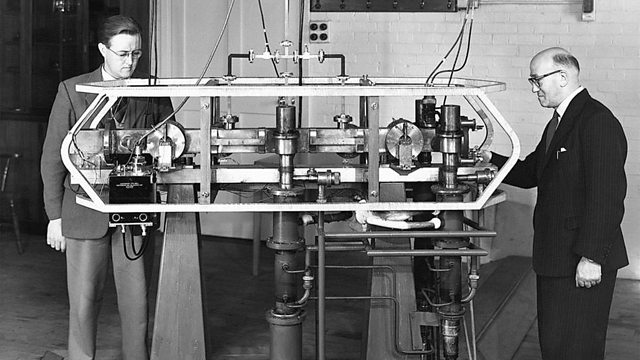The atomic clock runs on caesium, and has redefined the very meaning of time. But it has also introduced a bug into timekeeping.
The atomic clock runs on caesium, and has redefined the very meaning of time. But it has also introduced a bug into timekeeping that affects everything from computerised financial markets to electricity grids, and satellite navigation to the Greenwich Meridian.
Justin Rowlatt travels to the birthplace of modern time, the National Physical Laboratory in Teddington, England, to speak to Krzysztof Szymaniec, the keeper of the 'Caesium Fountain', and Leon Lobo, the man charged with disseminating time to the UK. He also hears from Felicitas Arias, director of time at the Bureau International des Poids et Mesures in Paris, about plans to abolish the 'leap second'.
And, the Astronomer Royal, Martin Rees, explains why even the atomic clock can never hope to provide an absolute measure of time.
Last on
Broadcasts
- Sat 25 Oct 2014 04:32GMTΒι¶ΉΤΌΕΔ World Service Online
- Sun 26 Oct 2014 00:32GMTΒι¶ΉΤΌΕΔ World Service Online
- Sun 26 Oct 2014 11:32GMTΒι¶ΉΤΌΕΔ World Service Online
- Sun 26 Oct 2014 19:32GMTΒι¶ΉΤΌΕΔ World Service Online
Podcast
-
![]()
Elements
Chemical elements: where do we get them and how do they fit into our economy?


